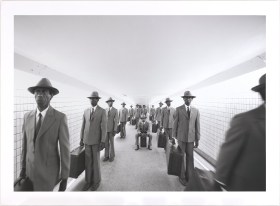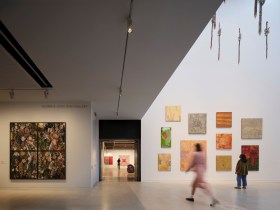The lack of diversity on arts boards is a topic that shot to prominence a couple of years ago when Ralph Myers, then outgoing Artistic Director of Belvoir Theatre in Sydney, observed. ‘A cursory look at the boards of the 28 major performing arts companies in Australia reveals a shocking lack of diversity. Wealthy white men overwhelmingly dominate, followed at some distance by wealthy white women. There are few actual artists on these boards.’
Myers believes Australia’s cultural life is under threat from arts leaders who are not practising artists and boards packed with businessmen.
Read: Fight to keep the dreamers in charge: Myers
But the topic is not new. His comments reminded me of a conversation I had with the late, great Robert Helpmann while we were both rehearsing shows in Adelaide. His answer turned the question around: ‘You’ll notice that none of these high-powered businessmen put ballet dancers on their boards.’
It’s true that there is generally a paucity of arts practitioners on arts boards. It is often thought that good solid groups of accountants and lawyers will get the thing sorted. And business people like being on arts boards because they think it looks good on their CV when they quote membership of a gallery, symphony orchestra or arts centre. They often see it as a good career stepping stone.
Being an arts practitioner who has served on numerous boards I am very aware of the need for boards to have proper guidance on legal matters and expert financial advice, but as Myers pointed out there is too often an element missing : the perspective of the people who actually make the product. Bobby Helpmann was overstating the case when he flipped the question around to suggest that it was no more necessary than having a ballet dancer could be on the board of, say, Coca Cola Amatil. I doubt that major corporate board runs without clear advice from the people who make the stuff they’re selling.
It is too easy for arts boards to rule out an initiative proposed by senior staff on the grounds that the project is too risky. Where the arts differs from many other businesses is that our product is always in a state of change and development. We must keep encouraging new discoveries and artists to have new ideas. Even with companies staging the traditional repertoire , opera and ballet for instance, they too must keep finding new approaches in order to engage their audience and keep their art form alive.
But unfortunately it’s not easy to recruit arts practitioners to boards. People who could add the artists’ perspective to Board deliberations are often reluctant to commit. As a member of one such board considering new appointments we recently invited several arts practitioners, to no effect. Too often they refused because they thought it might conflict with their work. A celebrated actor I worked with, who could have made great contribution, refused because they were quite understandably waiting for a call from Hollywood.
I challenge the people who make and perform in the arts to consider contributing to the governance of the bodies who employ them. Yes, it’s not easy when there’s not much work around and the work pattern is erratic : while some people are earning a couple of mill a film, others are working in hospitality waiting for the next gig.
But I still encourage arts boards to keep approaching them.
Lastly, spare a thought for the Administrators and Artistic Directors who report to these boards. When a board member expert in accountancy or law makes a ridiculous artistic suggestion, does the administrator use the classic line “Thanks, I’ll take that on board” when what they really mean is “mate, you’ve gotta be joking”.






